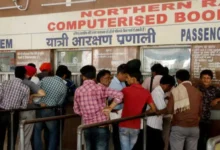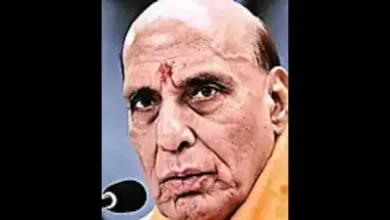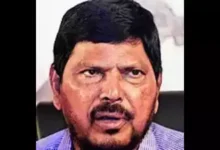-
NATIONAL

Mumbai College Continues to Operate Normally in spite of reported…
Mumbai: The Free Press Journal visited the South Bombay college after the principal filed an…
Read More » -

-

-

-

-
UP STATE

UP Husband kills wife because he intended to give his…
A dispute over a present the bride received from her brother led to the death…
Read More » -

-

-

-
BIHAR

“RJD’s lantern is about to go out.”
Bhagalpur: Defense Minister Rajnath Singh poked fun at the opposition Mahagathbandhan in Bihar on Tuesday,…
Read More » -

-

-

-
ENTERTAINMENT

Before the movie’s release, Sai Dhanshika’s “The Proof” crew asks…
One of the busiest sectors of the Indian film industry is Tamil cinema, which attracts…
Read More » -
ENTERTAINMENT

Seeman, Samuthirakani, KS Ravikumar, and others attend the wedding of…
Cheran, a well-known filmmaker in Tamil cinema, has given viewers many enduring masterpieces to treasure.…
Read More » -
ENTERTAINMENT

Is it not the case that Lokesh Kanagaraj wrote ‘Coolie’…
Films ‘Master’ and ‘Leo’ were written by Rathna Kumar, a well-known collaborator of Lokesh Kanagraj.…
Read More »
-
INTERNATIONAL

Tragic Crater Fall Clutches Chinese Photographer Near Indonesia Volcano
An Indonesian volcano was the site of a tragic accident when a Chinese tourist and…
Read More » -

-

-

-

-
HEALTH

Saree Cancer: Everything You Should Know About Its Prevention
Saree cancer, also known as squamous cell carcinoma (SCC), is a kind of skin cancer…
Read More » -

-

-

-
LIFESTYLE

Immerse Yourself in Aizawl’s Rich Culture and Surrounding Beauty
The reasons for Aizawl city’s fame The city of Aizawl is located in the far…
Read More » -

-

-

-
SPORTS

MFA League: Western Railway defeated Income Tax 3-0, with striker…
In a Tuesday Premier Division (Corporate) match in the Mumbai Football Association (MFA) League at…
Read More » -
SPORTS

Ten Hag is not thrilled with how Man Utd’s victory…
Erik ten Hag, who fiercely defended his team’s accomplishment in making it to a second…
Read More » -
SPORTS

Rising Sunrisers Hyderabad hopes to outscore Royal Challengers Bengaluru once…
When Sunrisers Hyderabad (SRH) and Royal Challengers Bengaluru (RCB) play in their IPL return-leg match…
Read More » -
SPORTS

ISL: Odisha FC wins the opening leg against Mohun Bagan
Bhubaneswar: On Tuesday night, during the Indian Super League (ISL) 2023–24, Odisha FC defeated the…
Read More » -
SPORTS

Arsenal thrashes Chelsea in the Premier League to increase championship…
brutal With a 5-0 hammering of London rivals Chelsea on Tuesday, Arsenal laid down the…
Read More »























